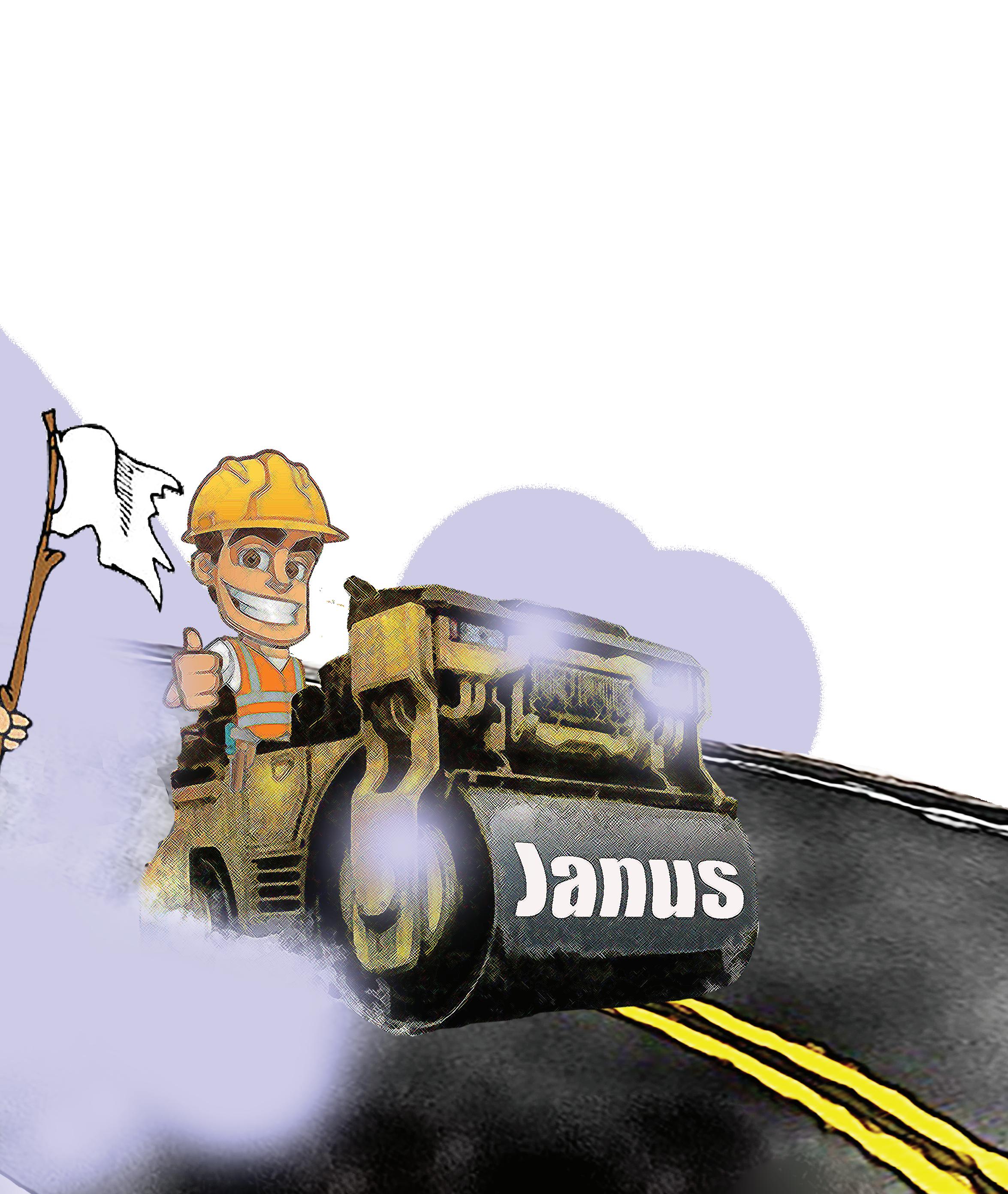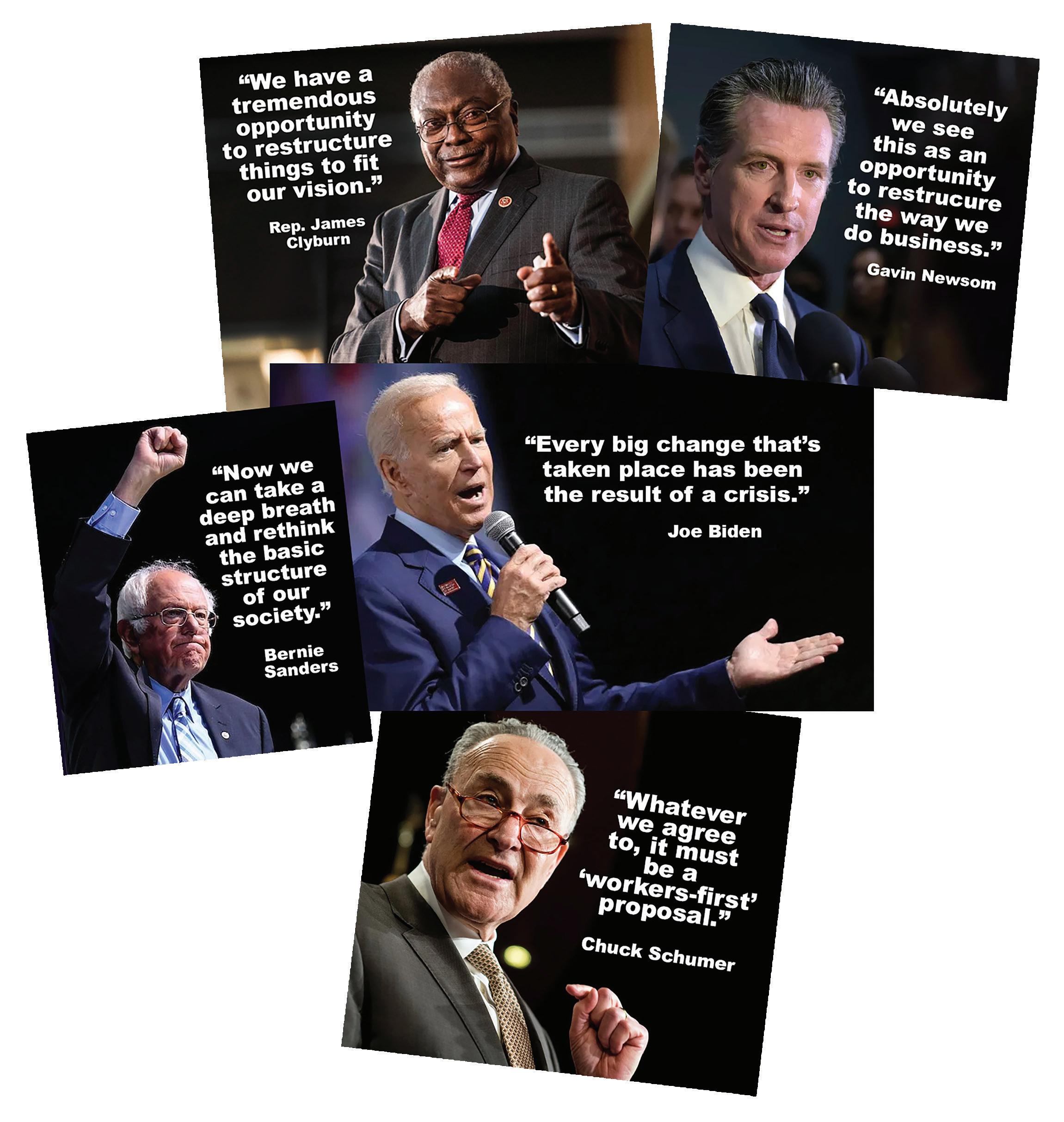
8 minute read
We'll Control It This Time
"WE CAN CONTROL IT THIS TIME"
There's a By BEN STRAKA Policy Analyst reason why millennials say they have a favorable opinion of socialism. They're being peddled a fantasy version of it. t’s hard to dispute the fact that in recent years, socialism has, in one form or another, garnered increasingly serious consideration among certain demographics of the American body politic as a viable political and economic option. While the reemergence of socialist thought in America hasn’t yet proved I powerful enough to propel the likes of Bernie Sanders to mainstream victory in his recent bids for the Democratic Party’s presidential nomination, there’s enough mounting evi
Advertisement
dence to suggest that history’s most tried-and-failed political philosophy is becoming increasingly poplular among young Americans.
Recent Gallup polls, for example, suggest that nearly 50 percent of millennials hold a positive view of socialism, while others indicate that roughly the same amount say they’d prefer to live in a socialist country.
Meanwhile, Sanders’ relative popularity on the national stage indicates a growing tolerance of socialist ideas in mainstream circles, and the new wave of “democratic socialism” he’s carried with him has swept a cadre of self-proclaimed socialist politicians into federal, state and local office in recent years.
But what is democratic socialism, anyway? Is it even possible for socialism to be remotely democratic? Moreover, how does the watered-down version of this notoriously authoritarian ideology truly differ from any of history’s most dangerous “-isms” that inevitably take root when individual rights are transferred away from citizens into the hands of the government?
Proponents of democratic socialism in America today are quick to emphasize the “democratic” part of their name. Yet at its core, the defining tenet of socialism in the 21st Century remains the same as it always was — abolishing private ownership of the means of production (i.e. the free market) and replacing it with a planned economy either wholly or substantially controlled by the state.
The nation’s largest democratic socialist organization, the Democratic Socialists of America (DSA), sums up its ideology as follows:
"Let's say you were negotiating at a bargaining table with workers in a bakery, and the workers said, 'Look, we want more than a quarter of the bread; we want half of the bread or we want two-thirds of the bread." The socialist would say, 'Actually, we want the bakery. We want to control it all, for all of our benefit.' "
According to DSA director Maria Svart, democratic socialists view capitalism as “fundamentally undemocratic” and ultimately hope to establish a political system under which crucial sectors of the American economy are owned entirely by the government while others are controlled

(and this is where they tout the “democratic” part of their name) by worker-owned cooperatives.
But for all their posturing about socialism going hand-in-hand with democracy, socialists today offer little evidence to suggest they know what the terms — or the philosophies behind them — truly mean.
The famous French political observer and classical liberal Alexis de Tocqueville put it quite bluntly:
“Democracy and socialism have nothing in common but one word, equality. But notice the difference: While democracy seeks equality in liberty, socialism seeks equality in restraint and servitude.”
Serious students of history have long known, as did de Tocqueville, that socialism’s inherent statist and redistributive principles are diametrically opposed to the idea of American democracy to begin with.
In truth, the fact that socialism cannot feasibly coexist with American democracy may not pose any problem for the most ardent of today’s socialist movement, many of whom, like the DSA, are transparent about their desire to “radically transform” the current American democratic system of government.
Yet at least in the most public-facing circles, democratic socialist politicians like Sanders and Rep. Alexandria Ocasio-Cortez (D-New York) are keen on insisting that their platform will somehow be different from both the authoritarian regimes of communist leaders past and the failures of modern socialist experiments in countries like Venezuela.
It seems the next brand of socialism will always be “different.”
Take Sanders’ stance on the current economic catastrophe and humanitarian crisis in Venezuela, for example.
Though the senator from Vermont has now dropped out of the 2020 Democratic presidential primary race, his sympathies for the dictatorial regime under disputed Venezuelan leader Nicolás Maduro — successor to Hugo Chavez — brought him highly publicized heat on the campaign trail from Republicans and Democrats alike.
It also demonstrated his failure to answer the one question America’s democratic socialists need to address most: Really, how will the “democratic socialism” they envision for America differ in any meaningful way from garden-variety socialism?
History, as always, provides the answer — it won’t. To the contrary, the ghosts of socialism both past and present teach us a difficult lesson the far left doesn’t seem to want to

learn, namely that this radical ideology inevitably leads nations down a dark road to economic depression and political tyranny.
Case in point, isn’t socialism just communism by a different name? What about Marxism?
For that matter, what makes it all that different from any other oppressive “-isms” you can name?
Political theorists may disagree, but after all, both Marx and Lenin believed the goal of socialism was communism. Who better to listen to than the theory’s most influential thinker — still lauded by groups like the DSA — and one of its leading practitioners?
By its very nature, Marxism necessitates the suppression of individual rights in achieving its end goal. Even worse, Marx himself wrote, along with Friedrich Engels in “The Communist Manifesto” (1848) that communism’s ends “… can be attained only by the forcible overthrow of all existing conditions.”
The latter has proven true in the worse of cases — and it’s unfortunately more than an unintended consequence.
From Russia to China to South America, the list of violent and bloody conflicts used as means to achieve the socialist-communist end is long. And even in cases where violence hasn’t been used, the long-term economic impact of socialism has time and time again devastated nations and left their citizens to suffer.
One need look no further than Venezuela, where the country is facing an economic crisis worse than the Great Depression, people are starving, and government critics are being killed.
If you need another example, turn to Cuba to see how its economy is faring after some 50 years of socialist rule.
Modern apologists for socialism (and, for that matter, communism) must always mislabel their product — adding the qualifier “democratic,” for example — and insist we can’t be sure socialism can’t work because “real socialism” has never been tried.
The problem with that explanation is that no other version of socialism is possible. Venezuela and Cuba aren’t exceptions to an ideal somehow invalidated by the uncharacteristic greed and corruption of those in charge. They’re the only logical conclusion in a philosophy that empowers a small group of flawed human beings to impose an arbitrary standard of fairness on everyone else.
It never takes long before the standard is redefined to allow those making the rules to benefit disproportionately. To be fair, capitalism is burdened by its share of corruption, too. But the system’s inherent strength is that decisions are made not by one or a handful of humans, but by millions.
When the ruling elite act in their own self-interest, the resulting decisions are — by definition — not what’s best for everyone. But to the extent free markets are permitted to express our collective will, the ultimate result will always come closer to objective fairness than under any other system imaginable.
To paraphrase Winston Churchill, capitalism is the worst economic system on earth — except for everything else.
Eager as they may be to feel “revolutionary, it’s a safe bet many of America’s leftist millennials checking off the “positive” box on Gallup’s socialism poll don’t actually want the experience of a Russian or Chinese-style revolution on their own turf. Nor do they want to suffer under the oppressive rule of a dictator like Venezuela’s Maduro (just think how much some like to think they’re oppressed under President Trump).
No, it’s much more likely the country’s growing body of young socialists simply want all the free stuff promised by Bernie Sanders and snake oil salesmen like him — until they actually have the power and the bills start coming due.
That doesn’t mean it’s to be taken lightly, though. Now, more than ever, it’s important to educate young Americans about what “-isms” like socialism really mean and the dark places to which history shows us they lead.
The fact remains that one “-ism” in particular — capitalism — has consistently provided more economic opportunity to the masses than any other political or economic system known yet to man. It may not be a perfect system, but as de Tocqueville wrote about democracy, “(It) seeks equality in liberty.”
By protecting individual liberty and encouraging competitive free enterprise, the American democratic experiment has successfully grown this nation — and its people — to become the most prosperous on earth.
It would seem, therefore, that the proper solution to the world’s economic difficulties should be to encourage more people to freely participate in this competitive process, rather than to once again follow socialism — “democratic” or otherwise — down the slippery slope it leads to economic destruction and, inevitably, government tyranny.
History’s signposts are clear, and we must follow them.
By JAMI LUND
Senior Policy Analyst the Next BIG ThinG








